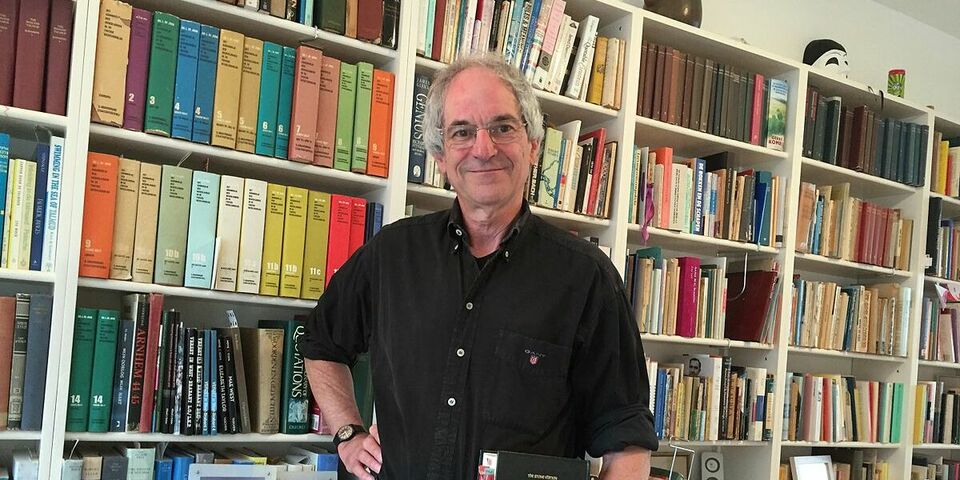Before long all the scientific articles written by Dutch researchers will be freely available to everyone to read. That's the plan. As of 2020 scientists will no longer be allowed to publish in journals that use a paywall.
This is because like France and the United Kingdom, the Netherlands is supporting Plan S, an initiative by eleven European countries intended to force a breakthrough in open access. The idea is that scientists will no longer pay to read journals, but to publish in them.
Rebellion
Food scientist Martijn Katan, emeritus professor at VU Amsterdam, sees little good in the scheme. He is one of the signatories to a letter warning of the consequences and he predicts that more scientists will rebel.
It sounds ideal: all scientific articles will soon be available to everyone free of charge. What's wrong with that?
“Everything has its price. 'Free' is an illusion. Under the open access system the requirement to pay shifts from the university library to individual scientists. Universities are always short of funds. Before long they will have to make further cutbacks and you won't be able to publish. You'll have no choice but to find some another pot somewhere.”
What consequence would that have?
“That scientists approach trade and industry to secure sponsorship for their publications. It's already happening with theses, because doctoral candidates are poor. And trade and industry will say, 'No problem, but would you mind maybe changing this one word?'”
Shifting
Open access is supposed to be cheaper. Universities think the current journals are too expensive.
“Then they should get organized. Send out a retired general from the commandos. He'd simply say, 'Guys, enough is enough, next year we'll pay 50 percent less.' A publisher like Elsevier needs us more than we need them. If we don't pay, they go bankrupt. The problem is that the universities allow themselves to be played off against one another. They should unite, like the Dutch diamond cutters did in 1894. Scientists shouldn't have to pay for this failure on the part of universities and government bodies.”
What is wrong with paying for publications instead of subscriptions?
“At present a journal's main concern is its reputation: it prefers to publish the very best articles, so that everyone takes out a subscription. That will soon change, because the more articles they accept, the more the cash register will ring, even if those articles aren't that good. These publishers are going to start thinking, okay then, we'll settle for a less stellar reputation.
For the Netherlands, by the way, it will be a more expensive system, because the Dutch publish a great deal. We are productive and that will soon come at a price.”
Village
In physics open access is common practice. So why not have it in other fields?
“It is not without reason that the proponents of open access, like Stan Gielen and his predecessor at NWO Jos Engelen, tend to come from the field of physics. Look, physicists are highly principled and there are few interests at stake. Physics is like a village with tight social control. If you do anything odd, everyone notices. But a field like life sciences, with a lot of vested interests, is like Mexico City or New York. You need police, otherwise things go awry.
These physicists and molecular biologists are also proponents of open data. That means making not only your article freely available, but also your data. Physicists are decent people and, what's more, they are under less pressure from trade and industry. If someone says to me, 'Can you give me the data from that study in which you conclude that soft drinks are bad?' then I'm wary. Because the soft drinks manufacturers would love to pick through my data so they can sow doubt. They'll say, 'According to your own data cola seems not at all bad for left-handed girls who go to church on Sunday, what's going on?' It's a bad world and one that physicists aren't really familiar with.”
Skilful
Doesn't your protest play into the hands of the big publishers?
“Publishers like Elsevier and Springer will dominate open access. They are skilful enough to do that. Nothing much will change in that respect.”
Scientific research is often funded with public money. So isn't it strange that the articles disappear behind a paywall and you have to pay to read them?
“I went to a museum with my grandchild. It was really enjoyable but I did have to pay 16 euros for him, even though the museum receives grants. Is that unfair? And at the baker the bread is behind a paywall, yet we have all kinds of European farm subsidies. It isn't a big deal. You can simply go along to a library, or you can send the author of the article an email. Of course, it is more convenient if it is all free, but there's no such thing as 'free'.”
PS. Earlier this month Robert-Jan Smits, who becomes president of the TU/e Executive Board in 2019, spoke with KNAW members about their concerns about open access. The scientists asked mainly for more time and a less rigorous transition.


Discussion